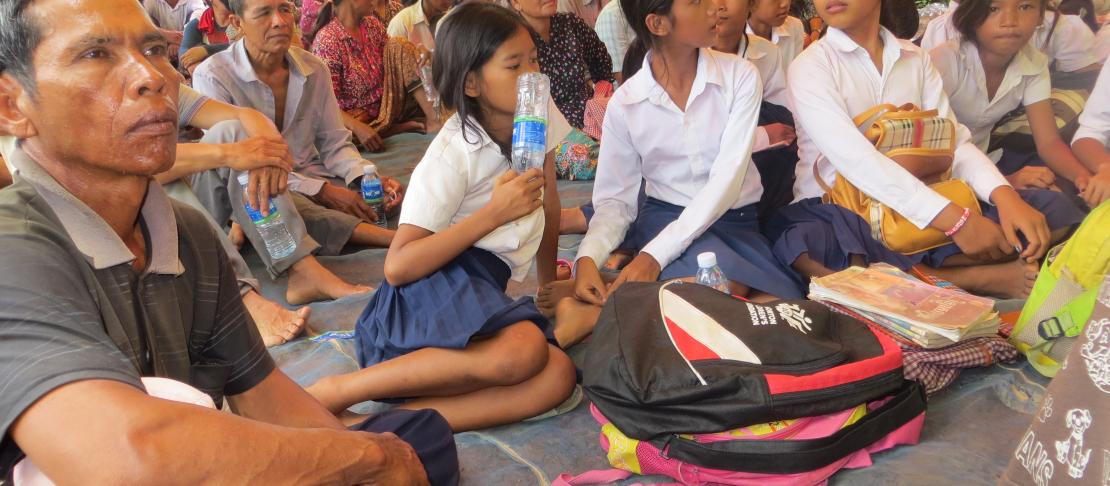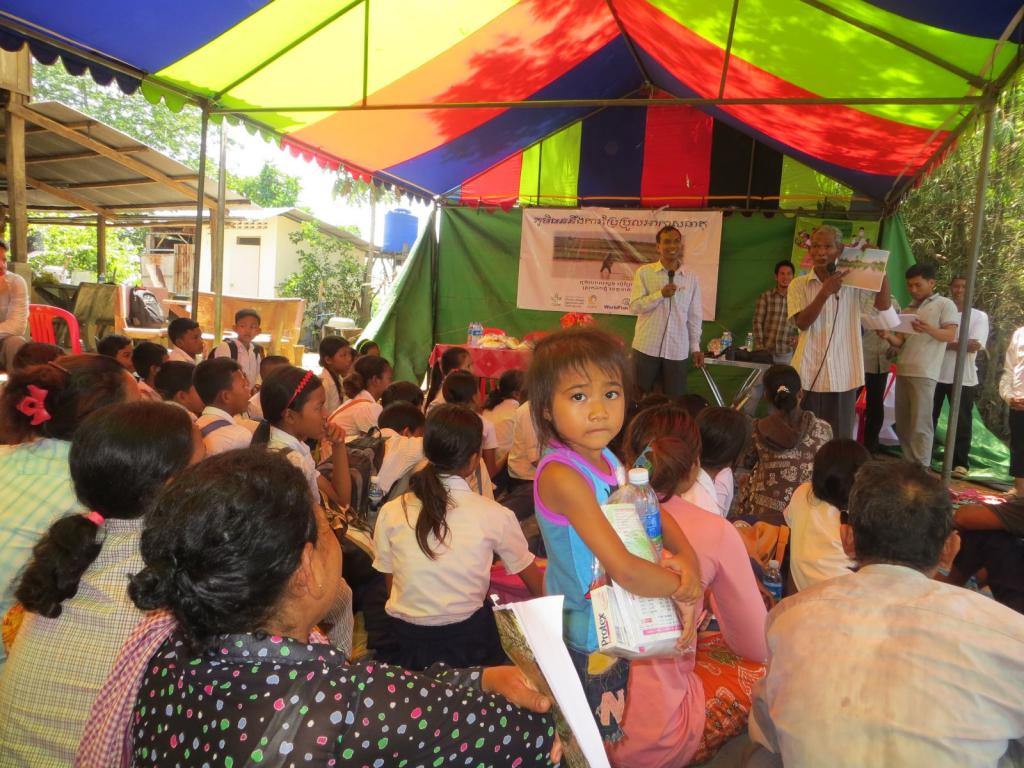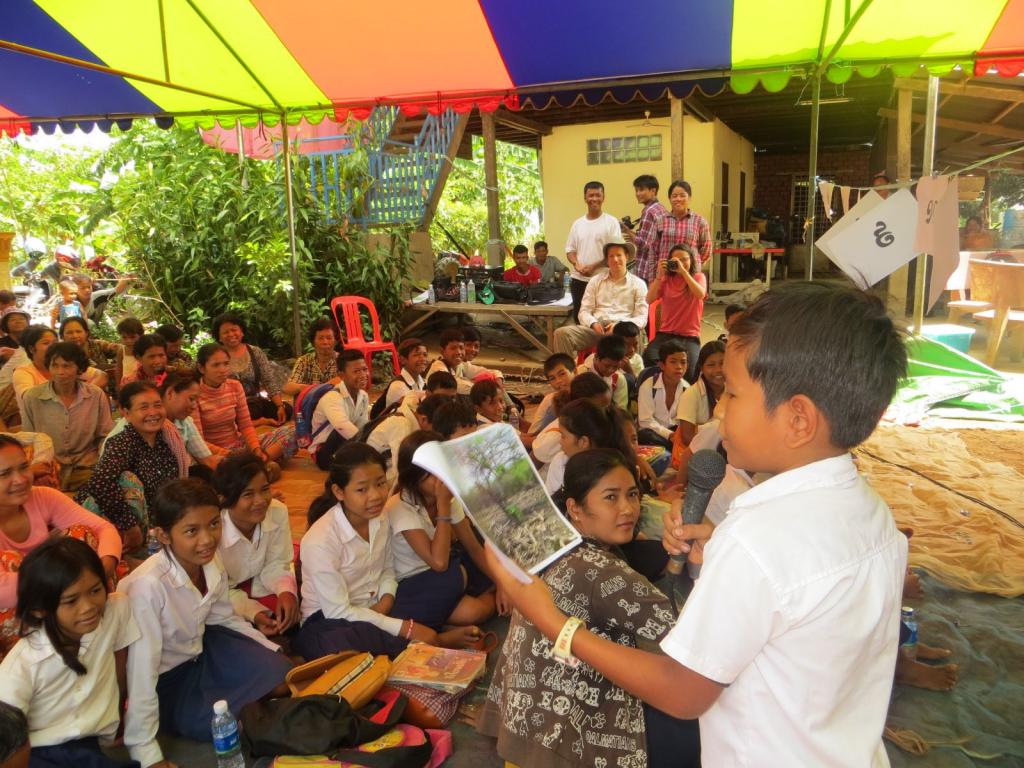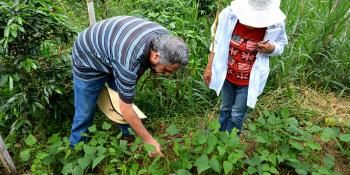Cambodia launches a Climate-Smart Village

A Climate-Smart Village was launched in Rohal Suong, Cambodia, to improve food security, climate change adaptation and mitigation in the area.
The people of Rohal Suong, a commune in Eak Phnom district, Battambang province, north of Cambodia, depend on rice farming and other agriculture-based enterprise for income and livelihood. While richly endowed with natural resources, one-third of its population, or around 1,300 people, remain poor. This places them in a more vulnerable situation as climate change impacts like temperature increase, flooding and drought affect their production system.
This was the impetus in identifying Rohal Suong as one of the sites where, with the community’s involvement in partnership with various stakeholders, climate-smart agricultural interventions will be tested and implemented to improve farmers’ income and boost climatic resilience and the ability to adapt to climate change.
Village activities took an initial spin on 8 June 2015 as WorldFish Cambodia and partners organized a public meeting to officially launch Rohal Suong as a Climate-Smart Village (CSV) under the CGIAR Research Program on Climate Change, Agriculture and Food Security in Southeast Asia (CCAFS SEA).
Over a hundred participants, including farmers, community groups, fertilizer shopkeepers, school teachers, students and leaders from neighboring villages, attended the meeting. Key representatives from WorldFish, Provincial Department of Agriculture, District Agricultural Office, commune and village authorities chaired this event.

An elder shares his experiences related to changes in the weather, climate and environment. This shows the wealth of knowledge the community has in the elders and the researchers working in the village. Photo: WorldFish/Eam Dyna
During the meeting, the project team took the opportunity to raise the villagers’ and other stakeholders’ awareness of climate change and its impacts through brief lectures, open dialogue, and video presentations. The activities were particularly helpful as based on the findings of the situation analysis and baseline survey conducted previously by the team, most farmers in the village noticed changes in the weather and environment condition yet they are not clear as to what causes these changes. Additionally, they are unsure of how to adapt to these changes.
As Kim Tort, a 68-year-old village farmer, shared, “I remembered when I was young, there were more rains and they seemed to come regularly, unlike in recent years when we had experienced drought, flooding, and high temperatures during dry seasons.”
Mr Keng Savun, the Prek Norint commune councillor, recognized that climate change has already affected the farmers and their livelihoods. He said, “We are living in the field and the flooded area near the Tonle Sap Great Lake, a highly vulnerable area for the people. Our people are experiencing the different challenges of climate change and natural disasters, especially floods and storms.”
Not to leave out the school children and women, the team organized a quiz session. Participants chose from a stack of pictures depicting climate change and were asked to interpret it before the audience. The activity aimed to engage the women and youth early on in the life of the project to ensure an inclusive and participatory approach to development in the village.

A student interprets a picture from the quiz session. It is important to include the more vulnerable groups in such events, so that they also understand the impacts of climate change. Photo: WorldFish/Eam Dyna
Setting a positive momentum in the event were the encouraging remarks and unmistakable interest from the village people and local authorities toward the project. Both the project team and local farmers thus have the incentive to continue working together to achieve the goals set for the village, to extend to nearby communes, and the broader landscape. In such an event, the Battambang province, which is the main economic hub connecting the entire region to Phnom Penh and Thailand, stands to gain amid various climate challenges.
Other upcoming activities in Rohal Suong include a needs assessment for the Pest Smart project led by the Centre for Agriculture and Biosciences International (CABI) and participatory land-use mapping and planning. A climate-smart agriculture (CSA) prioritization workshop to identify priority interventions and potential CSA technologies for the village will be consolidated and analysed for testing and implementation in Rohal Suong village.
Read more:
- Future scenario development now part of Cambodia's Action Plan for Agriculture
- What do we need to know to make climate-smart agriculture a reality?
- Vietnamese youth creates symbols of hope
Watch: What is CSA?
Dyna Eam is the Rohal Suong CSV team leader. Amy Cruz is the junior communications specialist for the World Agroforestry Centre Philippines and a communication consultant with the CCAFS SEA program.



